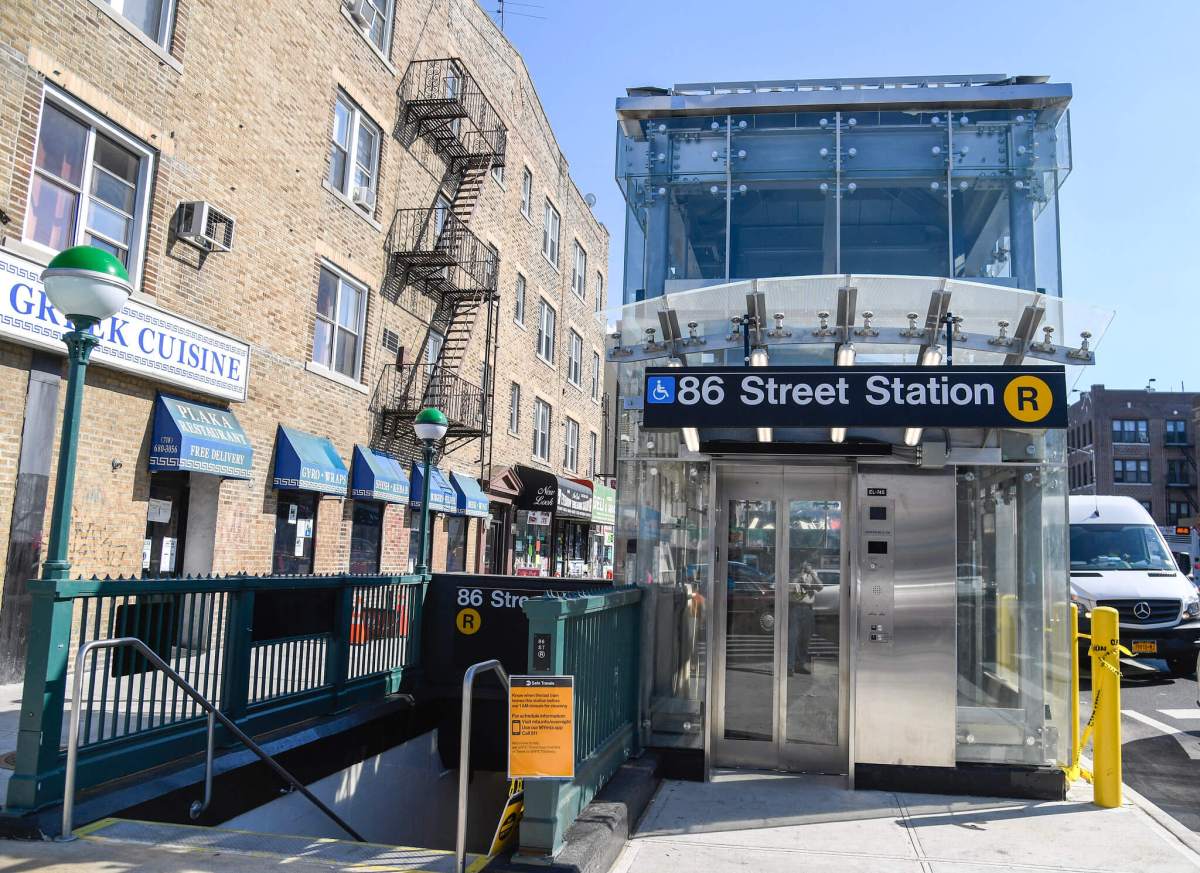An MTA contractor based in Queens has reached a settlement with the city over thousands of dollars in wage theft during construction work on two subway stations.
Bottom Line Construction & Development, based in Laurelton, Queens, agreed last week to pay a $14,215.64 fine to the City Comptroller’s office for failing to pay prevailing wages to employees during demolition and masonry work at the 86th Street R train stop in Brooklyn and the Broad Channel A train station in Queens in 2019.
The company — which was working on a subcontract by construction firm Masterpiece U.S. Inc — admitted to underpaying six employees by more than $8,000. The complaint was brought forth by two of the employees, but an investigation uncovered that the firm had underpaid at least four other workers as well.
All six were entitled to the prevailing wage — the required pay rate set for work on public projects — for masonry, carpentry, and construction work. One employee was stiffed of nearly $3,500 in wages between August and December 2019, which rises to just over $4,900 when including accrued interest at a rate of 16%.
“Every construction worker deserves full pay for their work on public projects, yet companies like Bottom Line skim rightfully earned wages from its workers,” City Comptroller Brad Lander said in a statement. “This settlement serves as a reminder that contractors doing business with the city must adhere to prevailing wage laws, and companies that neglect to pay their workers will be held accountable.”
The fine against the company includes interest and penalties along with the back wages. The Comptroller’s office conceded that Bottom Line’s actions had not constituted a “willful violation.”
An MTA spokesperson said the Harlem-based company had served as a contractor on three agency projects, but never as a primary firm, and that the company does not currently hold any contracts for MTA work.
“While we will not comment on this specific case and have no role in determining third party personnel policies, the MTA is committed to fairly compensating those who work hard getting New Yorkers where they need to go,” said the spokesperson, Michael Cortez.
The firm does, however, hold $396,000 in city contracts with the School Construction Authority, the agency charged with designing, building, and maintaining public schools run by the Department of Education. The two contracts were both awarded this year, according to online contract database Checkbook NYC.
A message sent to Bottom Line for comment was not returned.
Read more: Transit Workers Demand Ousting of TWU VP After Brawl




































